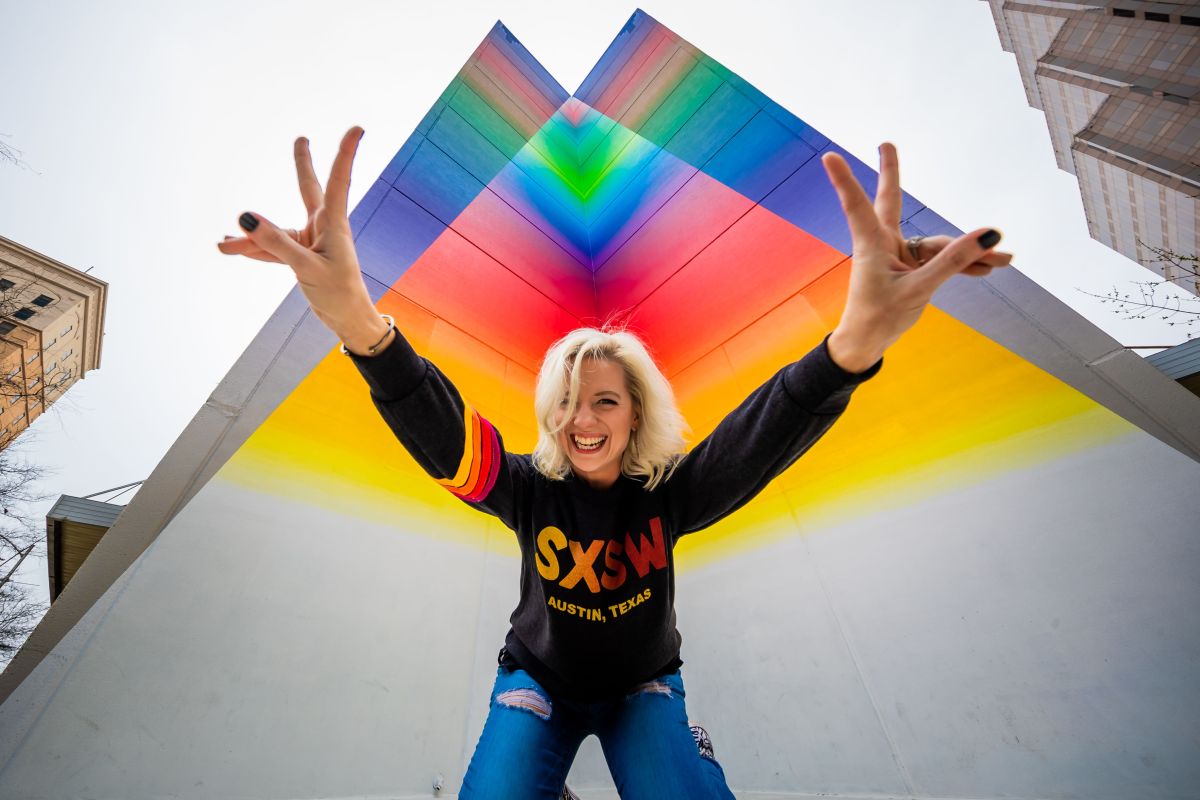Although the COVID-19 pandemic is far from over, many are resuming business as usual. Unfortunately, this includes major conferences and festivals like SXSW, which are largely returning to in-person programming and dropping virtual options. For disabled journalists and creators, the shift away from virtual programming—which became a go-to accommodation at the onset of the pandemic in 2020—is especially harmful.
For the last three years, work-from-home models and virtual programming options have opened conferences, festivals, jobs, meet-ups, and more to huge portions of the population who were previously barred from these opportunities due to a variety of factors. These include financial barriers, geographical barriers, health restrictions, physical ability levels, and more.
Even if there weren’t a pandemic involved, establishing virtual programming options, in conjunction with in-person events, invites more people to participate, which ultimately makes for more robust experiences and coverage from a much wider array of experiences and perspectives.
However, arguing for the continuation of virtual events often seems to fall on uninterested ears.
SXSW is just one of many festivals to discontinue its virtual programming model ahead of its 2023 event, which takes place in Austin, Texas, from March 10-19. Earlier this month, journalist John Dodson remarked upon this cancelation and also shared his experience attending the 2022 “hybrid” conference in person.
How SXSW fails disabled journalists
In a post on Monsters and Critics, Dods explained that in addition to having to rent a hotel room 20 miles from the convention center due to prohibitive costs, he also had issues renting a motorized wheelchair from SXSW’s alleged “list” of vendors, which he says was one company that was sold out. When he asked for additional options, he did not get a response. He eventually decided to attend the show in his manual chair.
“Due to the difficulties, my coworker at Monsters and Critics offered to pick up my press badge. Since we both work for the same company, it would save me the hassle of worrying about the expense and problems with transporting to pick up a badge. However, we were told I must come across town and get the badge in person,” Dodson wrote. His Uber driver dropped him off four miles from the pickup location, and a hotel worker kindly volunteered to push him. However, upon arriving at the convention center, a SXSW worker informed Dodson’s helper that no one could push him because they weren’t insured.
Journalist Raven Brunner, the person who tried to pick up Dodson’s badge, shared Dodson’s tweets about the experience and remarked, “Dumbfounded because it was such a simple accommodation. Disappointing to know that the week continued to bring challenges.”
In his post, Dodson noted that SXSW offers free “companion” badges for those who require assistance, but this is only helpful for some disabled journalists. Dodson was lucky enough to have a friend who could take off work and help for two days of the festival, but that isn’t a reality for many. And still, attending the festival in person became too taxing.
“That following Monday, I took advantage of the festival virtually back home because the thought of doing it all on my own again gave me extreme anxiety,” he wrote. “My job would not have been executed successfully without the hybrid (virtual and in-person) option.”
Taking away virtual options presents even more obstacles for journalists whose only option for coverage—even if they’d like to attend in person, like Dodson—is to attend events virtually.
Why virtual programming should still be a norm
Dodson is just one of many disabled journalists mourning the cancellation of virtual programming at SXSW and other conferences, festivals, and events. To put it simply, more accessibility is better, and that was the case long before the COVID-19 pandemic isolated an increased portion of the population in their homes.
Virtual programming has its problems, and advocates are working to increase accessibility in this area. Simultaneously, in-person events are being called out for their lack of accessibility, including Sundance, which is also incredibly important. It seems obvious to state that virtual programming and hybrid events should continue for broader and better accessibility, but apparently, it isn’t—at least not to event coordinators.
The long and short of it is that journalists like Dodson should have the same access to screeners, Q&As, and other content that makes the entertainment news world go ’round, and eliminating virtual events effectively tells those who can’t afford to attend in-person events for any reason that their perspective isn’t valuable. I’d argue that the opposite is true: Without coverage from marginalized individuals, the homogeneity of media gets increasingly worse. To combat that, we need better and more consistent accessibility, which the last three years has proven a dozen times over.
(featured image: Aaron Rogosin/SXSW)









Published: Feb 28, 2023 10:45 am